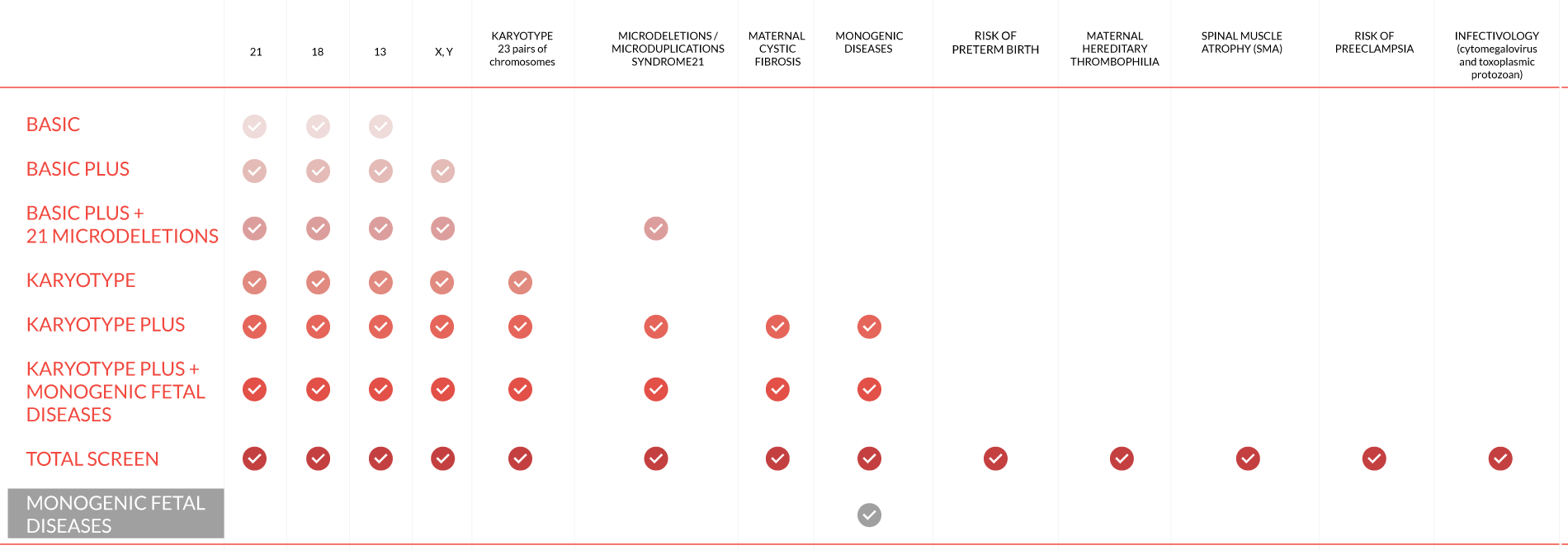Table comparison

Genetic disorders can be inherited in an autosomal dominant (one parent is affected), autosomal recessive (both parents are healthy carriers), or sex chromosome-associated manner. Some genetic disorders also have a de novo onset, that is, not transmitted by parents but produced in a casual way.
With the exception of beta thalassemia, the autosomal recessive genetic disorders analyzed have no symptomatic effect in the healthy carrier; for this reason there is a risk that two apparently healthy subjects may produce offspring affected by a disorder that both of them carry.
In cases of genetic disorder with a de novo onset, the parental analysis cannot detect any anomalies, as this is solely borne by the fetus and cannot be foreseen.
